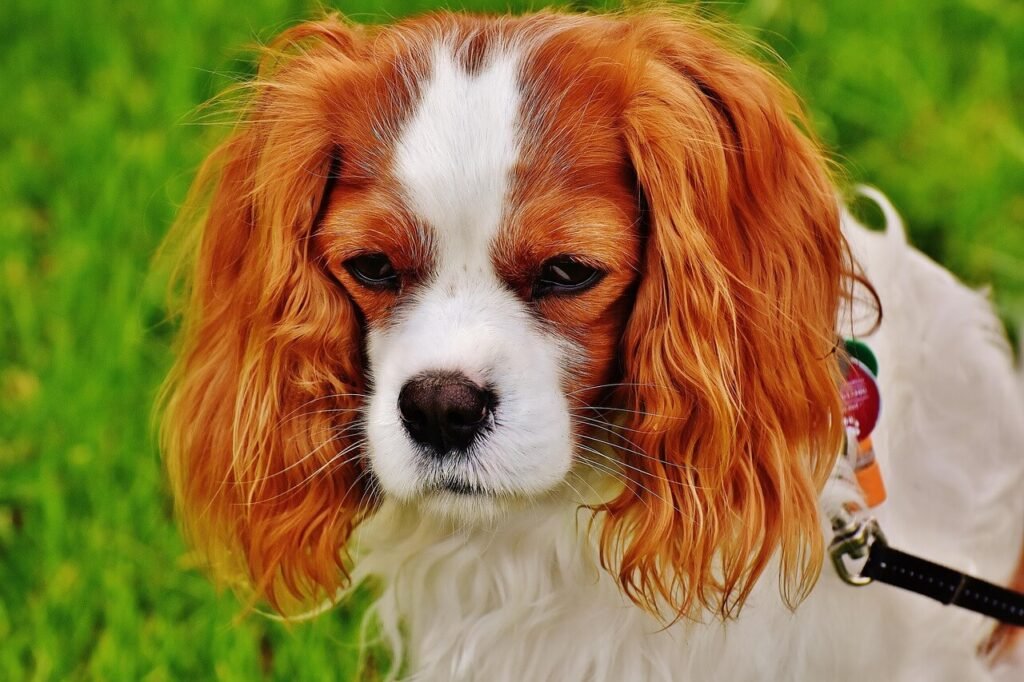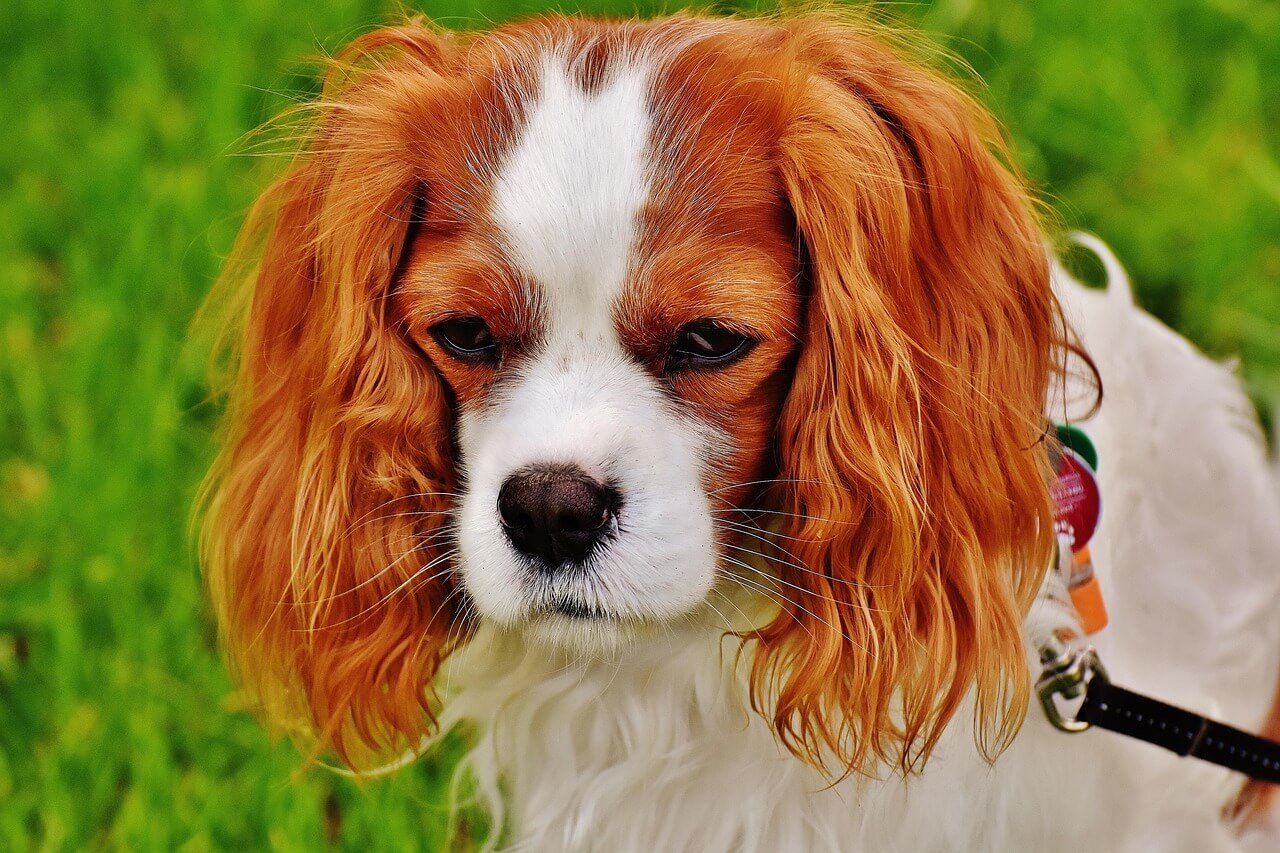Discover the Cockalier Dog: A Lovable Crossbreed Full of Charm
The cockalier dog, a delightful mix between a Cavalier King Charles Spaniel and a Cocker Spaniel, is quickly becoming a favorite among dog lovers. With their affectionate nature, striking appearance, and playful personality, cockaliers make wonderful companions for families, singles, and seniors alike. But what exactly makes this hybrid breed so special? In this blog post, we’ll explore everything you need to know about the cockalier dog, from their temperament and grooming needs to training tips and health considerations. Whether you’re considering adding a cockalier to your family or simply curious about this adorable breed, this guide has you covered.
Key Characteristics of the Cockalier Dog
The cockalier’s unique blend of traits from its parent breeds makes it a standout choice for many pet owners. Here are some key characteristics that define this lovable crossbreed:
Friendly and Affectionate:
Cockaliers thrive on human interaction and love being close to their owners, making them excellent lap dogs.Energetic Yet Calm:
While they enjoy playtime and outdoor activities, they’re also content to relax indoors with their family.Intelligent and Trainable:
Their high intelligence and eagerness to please make them quick learners during training sessions.Adaptable to Various Living Spaces:
Whether you live in an apartment or a house with a yard, cockaliers adapt well to different environments.Low Aggression Levels:
Known for their gentle and patient nature, cockaliers get along well with children and other pets.
These characteristics make the cockalier a versatile and loving companion for a wide range of households.
Grooming Needs of a Cockalier Dog
Cockaliers have beautiful coats that require regular maintenance to keep them looking their best. Understanding their grooming needs ensures your pup stays healthy and comfortable.
Brush Regularly:
Their silky, medium-length coat should be brushed at least 2-3 times a week to prevent tangles and matting.Bath Time:
Bathe your cockalier every 4-6 weeks using a gentle dog shampoo to keep their coat clean and shiny.Ear Care:
Both parent breeds are prone to ear infections, so check and clean their ears weekly to prevent issues.Nail Trimming:
Trim their nails every 3-4 weeks to avoid overgrowth, which can cause discomfort or walking problems.Dental Hygiene:
Brush their teeth 2-3 times a week to maintain oral health and reduce the risk of dental diseases.
By staying on top of these grooming tasks, you’ll ensure your cockalier remains happy, healthy, and looking fabulous.
Check this guide 👉Discovering the Pungsan Dog Price: Best 7 Expert Tips!
Check this guide 👉Discovering the Boerboel Dog: Best 7 Expert Tips!
Check this guide 👉Havapoo Dog: Top 7 Best Tips to Transform Your Puppy!

Trait | Description |
|---|---|
Temperament | Friendly, affectionate, and eager to please |
Exercise Needs | Moderate; 30-60 minutes of daily activity |
Lifespan | 12-15 years on average |
Size | Small to medium; 10-18 inches tall, 15-25 lbs |
Coat Type | Silky, medium-length, may be wavy or straight |
Training Tips for Your Cockalier Dog
Training a cockalier can be a rewarding experience thanks to their intelligence and desire to please. However, consistency and patience are key to success. Here are some effective training tips:
Start Early:
Begin training and socialization as early as possible to help your cockalier grow into a well-rounded adult dog.Use Positive Reinforcement:
Reward good behavior with treats, praise, or toys to encourage repetition of desired actions.Keep Sessions Short and Fun:
Limit training sessions to 10-15 minutes to hold their attention and make learning enjoyable.Focus on Socialization:
Expose your cockalier to different people, animals, and environments to build confidence and reduce anxiety.Be Patient with Stubbornness:
While generally obedient, cockaliers can occasionally display stubborn streaks—stay calm and consistent.
With the right approach, your cockalier will master commands and develop into a well-behaved and happy companion.
Health Considerations for Cockalier Dogs
Like all breeds, cockaliers are prone to certain health issues inherited from their parent breeds. Being aware of these concerns allows you to take preventive measures and ensure a long, healthy life for your furry friend.
Hip Dysplasia:
This condition, common in both parent breeds, can cause mobility issues if not managed properly.Ear Infections:
Their floppy ears trap moisture, increasing the risk of infections—regular cleaning is essential.Patellar Luxation:
A condition where the kneecap dislocates, requiring veterinary attention if symptoms arise.Heart Problems:
Cavalier King Charles Spaniels are prone to heart conditions, so monitor your cockalier’s cardiovascular health.Eye Disorders:
Conditions like cataracts or progressive retinal atrophy may occur, necessitating regular eye check-ups.
Regular vet visits and a healthy lifestyle can help mitigate these risks and keep your cockalier in top shape.
Ideal Living Conditions for a Cockalier Dog
Cockaliers are adaptable dogs, but providing the right environment ensures they thrive both physically and emotionally. Here are some factors to consider when creating an ideal living space for your cockalier:
Comfortable Indoor Space:
Ensure your home has a cozy spot, like a dog bed or cushion, where your cockalier can relax and feel secure.Access to Outdoor Areas:
A safe, fenced yard allows them to play and explore while staying protected from potential dangers.Temperature Control:
Cockaliers are sensitive to extreme temperatures, so keep your home at a comfortable level to prevent overheating or chilling.Quiet Zones for Rest:
Designate a quiet area away from noise and foot traffic where they can retreat when they need downtime.Interactive Toys:
Provide mentally stimulating toys to keep them entertained, especially if left alone for short periods.
By tailoring your home environment to their needs, you’ll create a happy and stress-free space for your cockalier to flourish.
Common Behavioral Traits of Cockalier Dogs
Understanding your cockalier’s behavior helps you build a stronger bond and address any challenges that may arise. Here are some common behavioral traits to watch for:
Affectionate Nature:
Cockaliers love cuddling and often seek physical closeness with their owners, making them excellent emotional companions.Separation Anxiety:
Due to their strong attachment, they may become anxious or distressed when left alone for extended periods.Playful Energy:
They enjoy interactive games like fetch or tug-of-war, which help burn off excess energy and strengthen your connection.Alert Barking:
While not aggressive, cockaliers may bark to alert you of strangers or unusual noises in their surroundings.Curiosity and Exploration:
Their inquisitive nature means they love sniffing around and investigating new environments during walks.
Recognizing these behaviors allows you to cater to their emotional and physical needs effectively, ensuring a harmonious relationship.
Tips for Feeding Your Cockalier Dog
Proper nutrition is essential for maintaining your cockalier’s health and vitality. Here are some tips to ensure your furry friend gets the best diet possible:
Choose High-Quality Food:
Opt for premium dog food formulated for small to medium breeds, ensuring it contains balanced nutrients.Portion Control:
Feed them according to their age, weight, and activity level to prevent overeating and obesity.Include Fresh Ingredients:
Occasionally add dog-safe fruits and vegetables, like carrots or blueberries, for added vitamins and variety.Avoid Harmful Foods:
Keep toxic items like chocolate, grapes, and onions out of reach to protect their health.Monitor Water Intake:
Always provide fresh, clean water to keep them hydrated, especially after exercise or on hot days.
By following these feeding guidelines, you’ll support your cockalier’s overall well-being and help them maintain a shiny coat, strong muscles, and boundless energy.
Frequently Asked Questions About Cockalier Dogs
Are cockalier dogs good for first-time owners?
Yes, their friendly and trainable nature makes them an excellent choice for novice dog owners.
How much exercise does a cockalier need?
They require moderate exercise, such as a daily walk or play session lasting 30-60 minutes.
Do cockaliers bark a lot?
While not excessive barkers, they may vocalize when excited or seeking attention.
Are cockaliers hypoallergenic?
No, they shed moderately and are not considered hypoallergenic.
What is the average lifespan of a cockalier?
Cockaliers typically live 12-15 years with proper care and nutrition.
Final Thoughts: Why the Cockalier Dog Could Be Your Perfect Companion
The cockalier dog combines the best traits of its Cavalier King Charles Spaniel and Cocker Spaniel heritage, resulting in a loyal, loving, and adaptable companion. Whether you’re looking for a playful partner for outdoor adventures or a cuddly friend to relax with at home, the cockalier fits the bill perfectly. By understanding their grooming needs, training requirements, and potential health concerns, you can provide the care and attention they deserve. If you’re ready to welcome a cockalier into your life, prepare for years of joy, laughter, and unconditional love. This delightful crossbreed truly embodies the phrase “man’s best friend.”
Do Cats Have Taste Buds? Best 7 Expert Tips! – Discover how cats experience flavors and why their taste is so unique.
Do Dogs Have Taste Buds? Best 7 Expert Tips! – Discover how dogs experience taste, their preferences, and what it means for their diet and health.
Can Cats Taste Sweet? Best 7 Expert Tips! – Discover why cats can’t taste sweetness, how it affects their diet, and tips to keep them healthy and happy.
Can Dogs Taste Sweet? Best 7 Expert Tips! – Discover how dogs perceive sweetness, which foods are safe, and tips to manage their sweet cravings responsibly.





